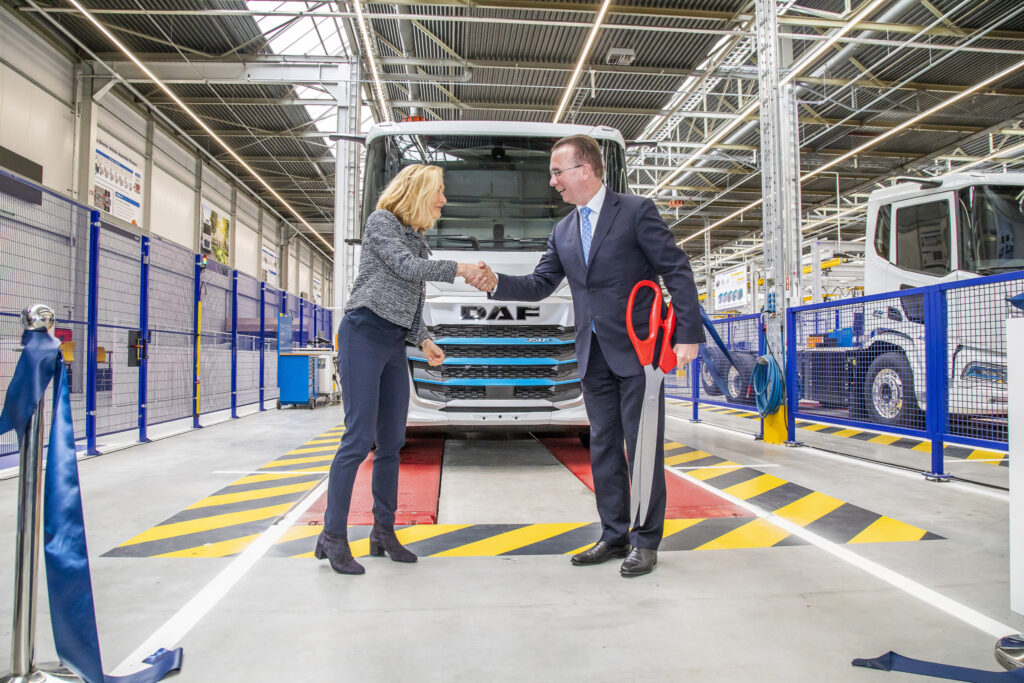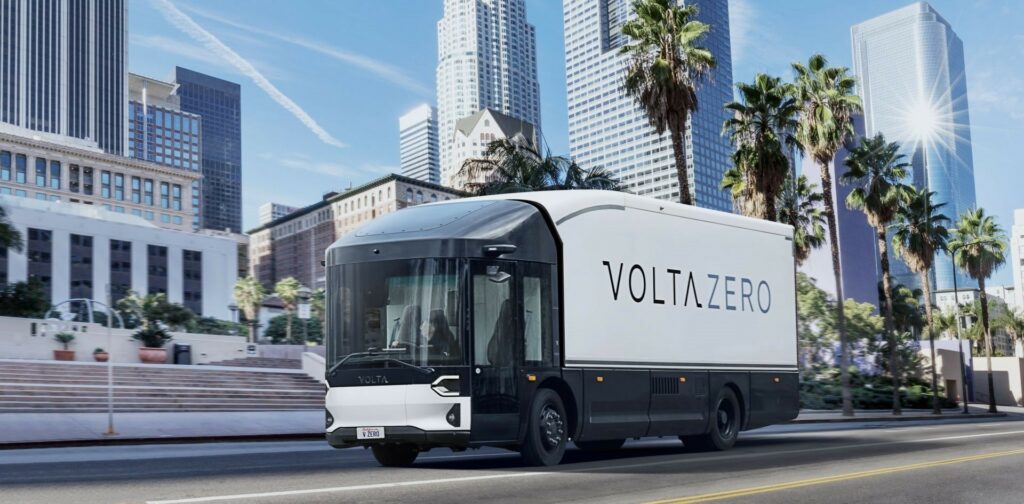Global Trucking Trends: Electrification, upgraded tachographs, and a parking fight
Electrification is at the top of mind for manufacturers on both sides of the Atlantic, and Paccar is involved in activity on both shores.
DAF Trucks — the Paccar subsidiary that builds trucks in the Netherlands, Belgium, Brazil and the U.K. – has opened its electric truck assembly plant.
“The commissioning of the new DAF Electric Truck Assembly plant represents another important milestone on the road to an even cleaner future,” DAF Trucks president Harold Seidel said in a press release.

The facility will produce models such as the XD and XF Electric, which are powered by Paccar electric motors and include battery packages that delivery 210 to 525 kWh of power. Maximum ranges of up to 500 km are possible, while fast charging of up to 350 kW can ensure battery packs are recharged up to 80% of their capacity in 45 minutes.
Series production of those models is to begin this summer.
Electric trucks here, but cut the red tape: Scania’s Cato
Scania, a Sweden-headquartered truck manufacturer with a presence in more than 100 countries, is calling on the European Union to reduce red tape that it believes is slowing the rollout of electrification.
“Our message to policymakers on electrification is clear: we are ready, the vehicles are here,” spokesman Jennie Cato said in an online post that notes the OEM will begin delivering heavy-duty electric trucks later this year. (Urban models are already in series production.)
“The trucks will not be the bottleneck in the transition. What’s needed is political leadership providing enabling factors and minimizing distracting regulations along the road.”
The OEM is calling for secure access to green electricity and charging infrastructure, and price parity between electric and fossil-driven transportation through CO2-based road charges and an Emission Trading System for road transportation. And it wants changes to the scope and timelines of Euro 7 emissions controls, arguing that today’s framework directs “substantial” engineering and financial resources to internal combustion engines.
Sweden holds the presidency of the European Union through the first half of 2023.

Volta production begins in Austria
Volta Trucks, which is preparing to launch trucks in the U.S., is now producing its 16-tonne all-electric Volta Zero at a Steyr Automotive plant in Steyr, Austria.
Prototypes were validated in 2022.
The first trucks being produced will be used in a Volta Zero Driving Experience Program, loaning customers a truck for an extended period of time, during which they can understand how the medium-duty models can be integrated into their operations. Customer orders are to be produced beginning in the third quarter of the year.
Steyr Automotive can build up to 14,000 Volta Trucks per year.
“In just 2.5 years, less than half the time existing truck manufacturers take, we have moved from launching a concept, through the engineering, development and quality phases and now the start of production of the final specification models that will be driven buy customers,” said Volta Trucks co-founder Kjell Waloen.
England’s Road Haulage Association fights for parking
England’s Road Haulage Association (RHA) has petitioned No10 Downing Street, home of the Prime Minister, in a call for more safe and secure parking for truck drivers.
Parliamentarians have signed an open letter co-ordinated by the All-Party Parliamentary Group (APPG) for Road Freight and Logistics, saying improved facilities should play a central role in the government’s efforts to recruit, train and support commercial drivers.
The RHA estimates the country needs 11,000 additional parking space.
“Commercial vehicle drivers are vital to our economy so better food, toilets, showers, and somewhere safe and secure to sleep are the very least they deserve,” said Richard Smith, RHA managing director.
“A key element of the issues around driver recruitment and retention is the poor state of our roadside facilities. It is imperative the U.K. ups our game, ensuring drivers have safe, secure, comfortable, and affordable options that they know they can rely on,” said MP Greg Smith, chairman of the APPG on road freight and logistics.
The petition has gathered 20,000 supporters so far.
Tachograph tech spec’s approved
The EU Road Transport Committee has approved technical specifications for the second version of a “transitional smart tachograph” that will be mandated on Aug. 21 to track Hours of Service – despite the lack of a coming satellite authentication feature.
“The new smart tachograph will bring about significant improvements, such as easier registration of border crossings and the possibility for enforcers to perform checks remotely,” said Raluca Marian, IRU director – EU advocacy.
“Signal authentication via satellite is an isolated new feature, which, albeit important, does not affect the tachograph’s main functions. We therefore welcome the determination of the European Commission and Member States to stick to the start date.”
The IRU identifies itself as the world road transport organization.
- This is the first in a recurring roundup of global trucking news from Europe and beyond
Have your say
This is a moderated forum. Comments will no longer be published unless they are accompanied by a first and last name and a verifiable email address. (Today's Trucking will not publish or share the email address.) Profane language and content deemed to be libelous, racist, or threatening in nature will not be published under any circumstances.